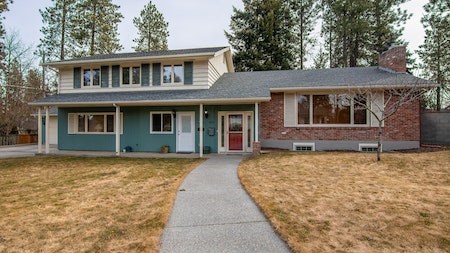Property Advice
Profitable paths in real estate
Private Property South Africa
Sarah-Jane Meyer |
Aug 2, 2023

Profitable Paths in Real Estate
There are a number of ways you can use properties as instruments of wealth creation:
- The value of a property you own - including your home - can increase enough that you can sell it and make a profit.
- You can collect rent on the property you own.
- You can receive dividends through property investments like real estate investment trusts (REITs).
Success with the first two methods relies on the concept that you shouldn't spend more on a property than you can make back. Whether you’re remodelling a kitchen or collecting monthly rent, be sure your expenses are lower than any potential profit.
The third method - REITs - allows you to invest in real estate without directly owning a property.
Increase value
If you own almost any property long enough, it should increase in value over time. This means you will make a profit when you sell - and this usually happens despite dips in the market. For example, even after significant global and national economic events like the Covid-19 pandemic or local interest rate hikes, property markets have shown resilience over time.
If you own a home, there are ways to give yourself a better chance of making a profit when it’s time to sell. Top of the list is to remodel with a future sale in mind. Some renovations recoup less value than others, so it's advisable to ask an active property practitioner in your area which revamps are most likely to add value and attract buyers.
Next, keep in mind that DIY projects have their limits. A good one can save money, but a bad one can wipe out your real estate investment returns. For example, a bad paint job can knock thousands off a home’s selling price. If you want to increase your home’s value, make sure you know what you’re doing - or hire a professional.
Acquisition
If you want to buy a home for yourself or as a rental property, you must be flexible. You may have a clear idea of what you want your home to look like, but you might save some money - and make a more significant return on your investment - if you keep your dreams in check.
Buying in winter or during a housing market downturn can be an excellent way to make money in real estate. Sellers may be more open to negotiating when buyers aren't beating a path to their door.
Do your homework. Asking questions can save you thousands of rand later on. Get a qualified home inspector to check fixed appliances like stoves and geysers, as well as the roof, sewerage and plumbing installations and any other fixtures that may need to be replaced. Ask yourself whether you can afford to replace several items within two years, and will you own the property for long enough to recoup the cost? If not, your property investment can end up costing you instead of increasing your wealth.
Rental income
If your home has a spare room or a granny flat, you can use them to start your real estate portfolio. To make a profit, you need to ensure that your rental income will exceed your expenses.
It’s also important to decide whether you want to rent to long-term tenants or focus on short holiday rentals.
- Long-term rentals can provide consistent income if there is a demand for accommodation in your area. Keep an eye on local listings and platforms like Private Property to gauge demand and rental pricing for similar listings.
- If you live in a popular holiday spot, short-term tenants may be a better option. Platforms like Airbnb insist on certain standards being maintained, so take this into account when calculating what you need to spend to renovate to that standard.
With long-term or short-term rentals, you should have an emergency fund set aside for your rental property. This will allow you to continue to make mortgage payments if tenants don’t pay rent or the stove needs to be replaced.
REITs
A Real Estate Investment Trust (REIT) is a company that derives income from the ownership, trading, and development of income-producing properties like shopping malls and office blocks. In South Africa, a REIT receives special tax considerations and offers investors exposure to real estate through shares listed on the Johannesburg Stock Exchange (JSE).
South African REITs must distribute at least 75 percent of their profits annually, and gearing is limited to 60 percent of net asset value.
By buying shares in a REIT, you will be investing in real estate without owning any property. You can easily invest in REITs through an online brokerage account, where you can buy and sell REITs just like stocks.
Whichever option you choose, keep in mind that real estate is a long-term investment. You shouldn’t expect remarkable short-term returns, but over the long term, real estate will usually outperform most other types of investment.





